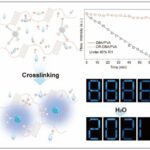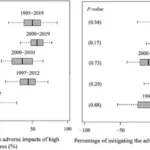
A groundbreaking study published in the Journal of the American College of Surgeons reveals a surprising twist in the prognosis of patients diagnosed with colorectal cancer (CRC) in the context of multiple primary malignancies. Leveraging data from the National Cancer Institute’s Surveillance, Epidemiology, and End Results (SEER) Program spanning two decades, researchers uncovered that the timing of CRC diagnosis relative to other cancers profoundly influences patient outcomes. Contrary to long-standing expectations, patients diagnosed with CRC as their first malignancy, followed by another distinct cancer, demonstrate notably superior survival rates compared to those with isolated CRC or those who develop CRC after another cancer.
The SEER database, renowned for its comprehensive capture of cancer incidence and survival statistics across broad demographics in the United States, was fundamental in dissecting these revelations. Researchers stratified patients into three cohorts: individuals exclusively diagnosed with CRC, those with CRC as the inaugural cancer followed by a subsequent malignancy, and patients whose CRC diagnosis followed the onset of a previous cancer. Analysis of survival data elucidated that patients in the second cohort experienced the most prolonged overall and cancer-specific survival durations, challenging conventional prognostic models which prioritized isolated CRC cases.
This counterintuitive finding defies the presumption that concurrent or multiple malignancies uniformly degrade prognosis. The enhanced survival observed in patients with CRC diagnosed first might stem from multifaceted interactions between cancer biology, medical surveillance, and treatment modalities. One prevailing theory posits that heightened clinical vigilance following a first cancer diagnosis results in earlier detection and more prompt intervention for a second malignancy. Additionally, initial cancer treatments may invoke systemic immunomodulatory effects that enhance the body’s ability to manage subsequent cancers, potentially through mechanisms such as immune priming or alteration of the tumor microenvironment.
.adsslot_Iy3inFSxMw{ width:728px !important; height:90px !important; }
@media (max-width:1199px) { .adsslot_Iy3inFSxMw{ width:468px !important; height:60px !important; } }
@media (max-width:767px) { .adsslot_Iy3inFSxMw{ width:320px !important; height:50px !important; } }
ADVERTISEMENT
Moreover, behavioral and lifestyle modifications adopted after an initial cancer diagnosis may contribute to improved outcomes. Patients often engage in healthier habits, rigorous adherence to screening protocols, and consistent medical follow-up, thereby facilitating earlier detection of new malignancies and optimizing treatment efficacy. Conversely, patients with isolated CRC who presented with more aggressive disease phenotypes—including greater rates of liver metastases—and who were less likely to undergo surgical resection, exhibited poorer survival metrics. This suggests that late-stage presentation and disease burden critically influence clinical outcomes.
The study also illuminated that patients diagnosed with CRC following a prior cancer had the worst prognoses, frequently harboring right-sided colorectal tumors, which are known to exhibit distinct molecular characteristics and aggressive clinical behavior. This subgroup often requires intensified therapeutic strategies and more aggressive clinical management. The presence of right-sided tumors is associated with microsatellite instability, BRAF mutations, and other genetic alterations that may confer resistance to conventional treatments, underscoring the necessity for precision oncology approaches tailored to tumor biology.
These insights carry profound clinical implications. For oncologists and surgeons, the findings underscore the urgency of refining colorectal cancer screening protocols, particularly in patients with a history of non-CRC malignancies. Increased surveillance intensity and early diagnostic evaluation may mitigate the poor outcomes observed in these high-risk groups. Furthermore, personalized therapeutic interventions leveraging molecular profiling could transform management paradigms, ensuring treatments are optimized according to tumor characteristics and patient history.
From a translational research perspective, the data stimulate inquiry into the underlying immunologic and molecular mechanisms that afford improved survival in patients diagnosed with CRC first. Investigations into the role of prior cancer therapies in modulating systemic immune responses could reveal novel adjuvant treatment strategies. Additionally, understanding how cancer treatments reshape the tumor microenvironment to influence subsequent malignancy evolution represents a fertile area for scientific exploration.
Patient education also emerges as a vital component of care. The study’s senior authors emphasize that surviving colorectal cancer does not confer immunity against other malignancies; rather, it presents an opportunity for vigilant monitoring and proactive health management. Early detection remains the cornerstone of improving cancer outcomes across the spectrum of primary and secondary malignancies.
The comprehensive analysis of nearly a million patient records within the SEER database underscores the transformative potential of big data analytics in oncology. By elucidating associations between cancer diagnosis sequence and survival, this study challenges dogma and ushers in nuanced understanding essential to evolving cancer care. It exemplifies how population-level data, combined with clinical acumen, can generate actionable insights that reshape treatment algorithms.
In conclusion, this investigation redefines prognostic assumptions in colorectal cancer amidst multiple primary cancers. It highlights that order of diagnosis is not a trivial detail but a critical factor influencing survival trajectories. The findings demand a recalibration of screening, surveillance, and intervention strategies, integrating the temporal context of multiple malignancies. Clinicians, researchers, and patients alike are called to adopt this paradigm to maximize clinical outcomes and enhance quality of life in colorectal cancer care.
Subject of Research: Colorectal cancer prognosis in patients with multiple primary malignancies
Article Title: Does the sequence of colorectal cancer diagnosis matter for patients with multiple primary cancers? A SEER Database Cohort Study
News Publication Date: 17-Jun-2025
Web References:
https://doi.org/10.1097/XCS.0000000000001413
References: Wignakumar A, Emile S, Dourado J, et al. Does the sequence of colorectal cancer diagnosis matter for patients with multiple primary cancers? A SEER Database Cohort Study. Journal of the American College of Surgeons, 2025.
Keywords: colorectal cancer, multiple primary malignancies, prognosis, cancer sequencing, SEER database, cancer surveillance, tumor biology, immunomodulation, surgical oncology, cancer screening, right-sided colorectal tumors, cancer survival
Tags: cancer epidemiology findingscancer incidence statisticscancer survival ratescancer treatment outcomescolorectal cancer and other malignanciescolorectal cancer diagnosis timingcolorectal cancer prognosisgroundbreaking cancer researchmultiple primary malignanciespatient cohort stratificationprognostic models in oncologySEER database analysis


